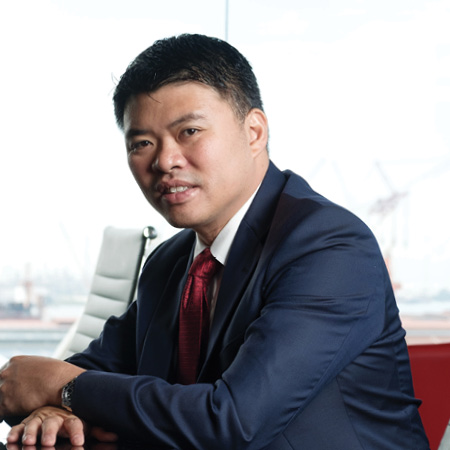Turn on any business channel in Asia and chances are you’ll see Yang Kee Logistics Group’s CEO Ken Koh singing the praises of Singapore’s small to medium enterprises (SMEs). The country may be a regional hub for leading multinationals, but a quick glance at the facts demonstrates just how significant the contribution of local SMEs and micro-enterprises are to the economy: they employ 70% of the workforce and contribute to almost half of the country’s GDP. The significant role native SMEs play in building a stronger Singapore was the driving factor behind Ken’s decision to join the company founded by his father, Koh Yang Kee, in 1990.
The school of hard knocks
“I graduated with a degree in electrical engineering from Nanyang Technological University in 2000 and went to work for Hewlett-Packard,” Ken says. Although he always had the intention to join the family company — Ken believes there’s “more opportunity to grow in a homegrown SME than a multinational corporation” — he admits his father pushed him into the business sooner than he hoped. By the age of 24, Ken found himself learning the ropes in the IT department before gradually moving up through the company ranks. He was appointed managing director in 2011.
Refreshingly open about the difficulties he’s faced along the way, Ken acknowledges his rise to executive management has been accompanied by its fair share of trial and error.
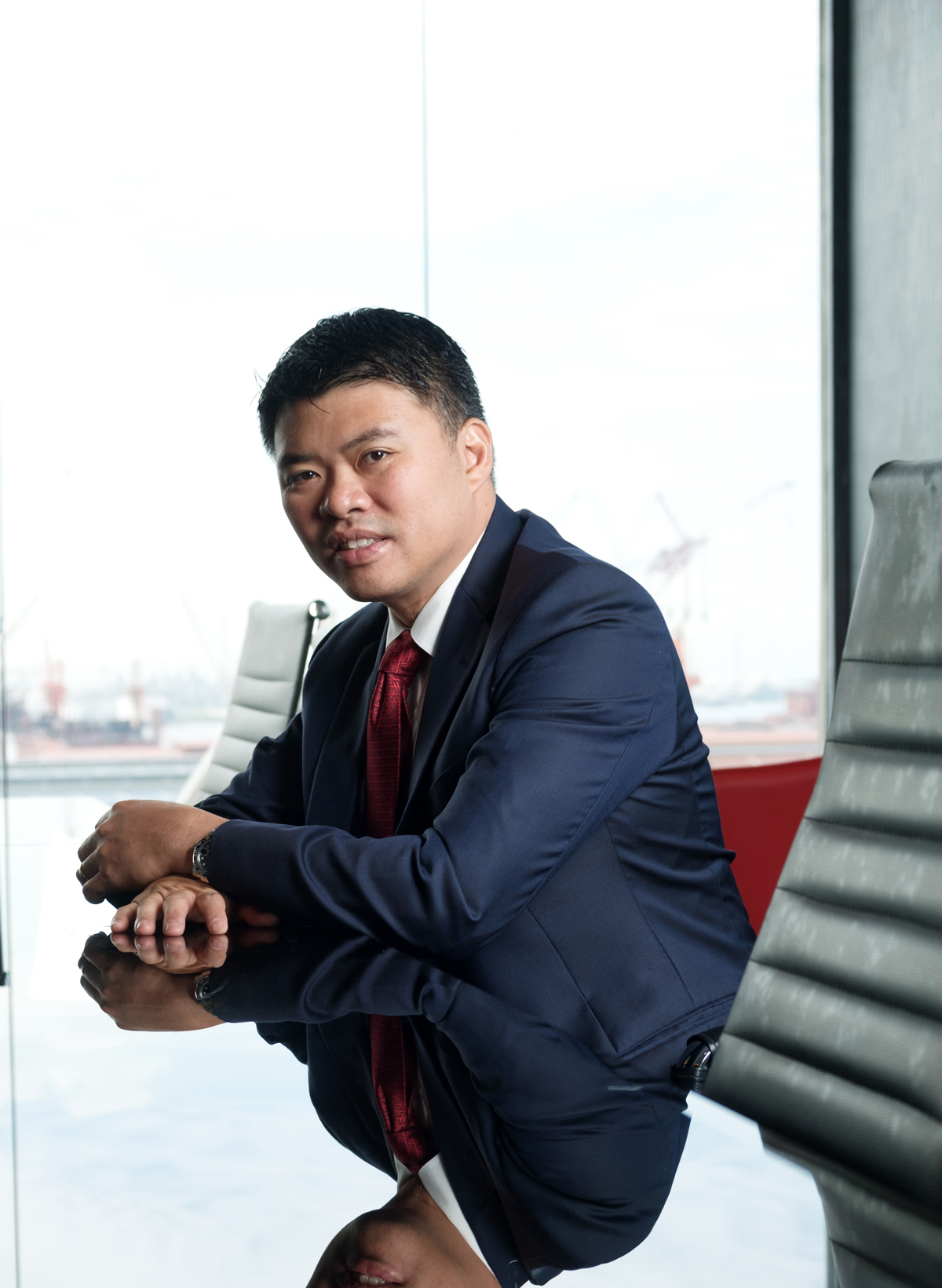
“Traditionally, logistics has been seen as a blue-collar job, but we’ve been using technological advances to help attract talent to the industry and nurture that talent.” – Ken Koh
“The problem with lots of family businesses is that there’s no fixed career path or training program,” he says. “There’s no structure in place to help the second generation understand and ease into the business.” As a result, Ken refers to his induction into the business as the “school of hard knocks”.
Despite the challenges, father and son have grown Yang Kee Logistics from a small transport company with 2 trucks to its name to a complete logistics provider encompassing freight forwarding and warehousing solutions primarily for the chemical, consumer and retail, industrial, and oil and gas sectors. Its head office is strategically located in Singapore’s Jurong Port district. The 900,000-square-foot site includes a purpose-built chemical logistics hub, which opened in 2012. This site is set to be complemented by a 5 level, multimillion-dollar development in Tuas South that is currently under construction and due to be completed in early 2018.
International footprint
One of the winners at the SME 100 Awards 2016, which recognises Singapore’s fast-moving companies, Yang Kee Logistics currently employs more than 400 people and has offices in 7 countries across the Asia–Pacific, including Cambodia, Thailand and Malaysia. Labelling Singapore a “saturated market”, Ken is quick to emphasise that his sights are set on expanding the company’s global presence. “Currently the majority of our resources, our capital, is deployed internationally. We’re not spending much on local acquisition, in local expansion. Singapore is too small,” he says. “I would say that in 3 years time we’ll be a billion-dollar company, the majority of this raised from interests outside of Singapore, with a global network and our own offices all over the world, especially in key markets like the US and Europe,” he says when asked what his overall vision for the future of the company is.
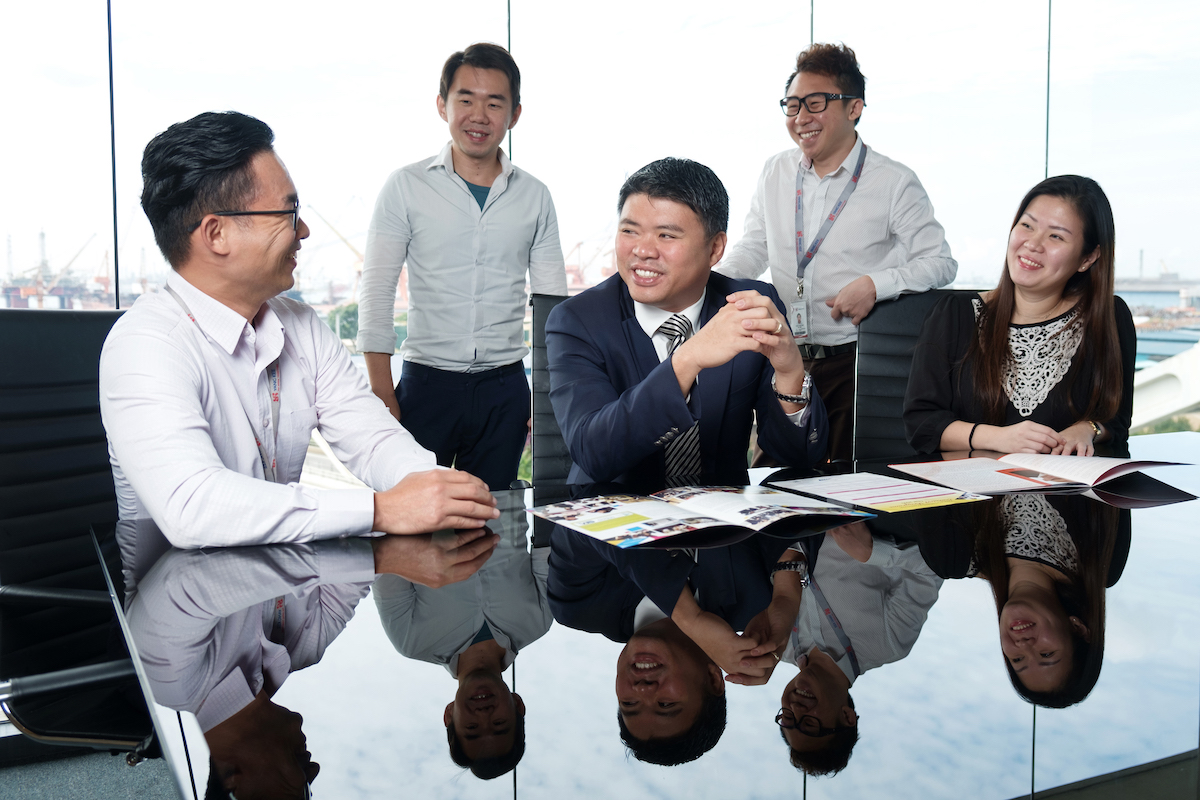
The first step towards this international footprint was achieved early this year when Yang Kee Logistics completed the purchase of an Australian company based out of Melbourne, the details of which are yet to be made public. “This acquisition will give us a presence in Australia, including 200 people, 3 warehouses in 4 cities, and a revenue of $150 million.” A hop across the Tasman is the next stop. “By the end of the first quarter in 2017, we plan to have acquired another company in New Zealand, and after that our focus will turn to Europe,” he says, predicting that by the end of the year the company will be sitting on revenue of around S$370 million.
This growth has come with the backing of the Singapore government, which encourages its SMEs to develop capabilities to better compete in the global economy and, where possible, establish a presence in international markets. “The government has actually subsidised part of our expansion,” says Ken. “We work with International Enterprise (IE), a government agency which has a mandate to help Singaporean companies expand overseas.” Part of IE’s assistance is the Internationalisation Finance Scheme (IFS). “The IFS helps businesses looking to grow internationally by under-writing some of the loans and the risks associated with overseas expansion,” he explains, before adding that the business also draws upon IE’s Manpower Development, a program designed to offer support to attract the right C-suite and executive-level talent to lead an international drive. The current CEO of Yang Kee, Jos Raaymakers, is Dutch and previously held the title of managing director East Asia for an MNC.
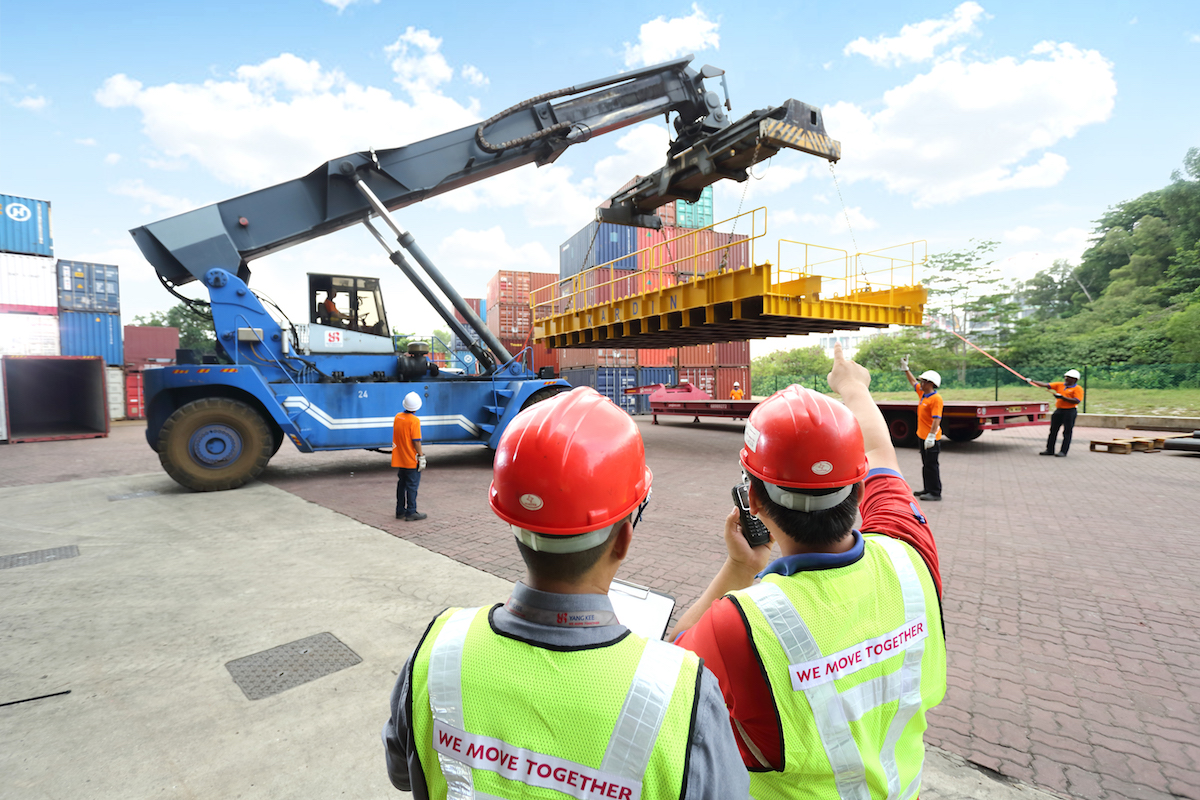
“The wonderful thing about Yang Kee Logistics is that we give personalisation to our customers.” – Ken Koh
Attractive new technologies
He believes internationalisation and manpower are 2 of the 3 key areas in which SMEs are contributing most to Singapore’s economy; productivity and innovation round out the list. Using innovation as an example, he explains each element complements the other. “Traditionally, logistics has been seen as a blue-collar job, but we’ve been using technological advances to help attract talent to the industry and nurture that talent,” he says. Although his profile serves to inject personality into the company and industry as a whole, Ken admits that “labour-intensive jobs such as ours are often perceived as unexciting and unglamorous. All the young people want to be in finance, banking or consultancy. In response, we’re implementing new technologies into our businesses that require an increase in value-added work. So it’s not as simple as it was previously.”
When asked, he doesn’t hesitate to name robotics as the most exciting innovation in the industry today. The robotics, which come in the form of automated guided vehicles (AGVs), facilitate the transport of cargo from the containers and loading bays to the warehouse. “As our use of robotics in the warehouse environment increases, the need for labour reduces. It’s enabled us to negate the need for drivers, as the forklifts are now completely automated,” he says. “We’re also heavily investing in software, including enterprise-level systems to help us monitor our operations on the ground. This gives our people real-time visibility into the movement of cargo in and out of the warehouses. Of course, each innovation we deploy reduces our need for manpower,” he concedes, although employees see a tangible benefit. “We have a policy that, with what we save from the reduction in manpower costs, we reinvest in our people through training and increments. Their salaries are higher and they have the opportunity to do more value-added work.”
Corporate welfare
The company is recognised for the number of employee initiatives it has in place. “Our in-house logistics academy offers internal training, especially at a senior management level. With this further education comes an increase in overall income level,” Ken says.
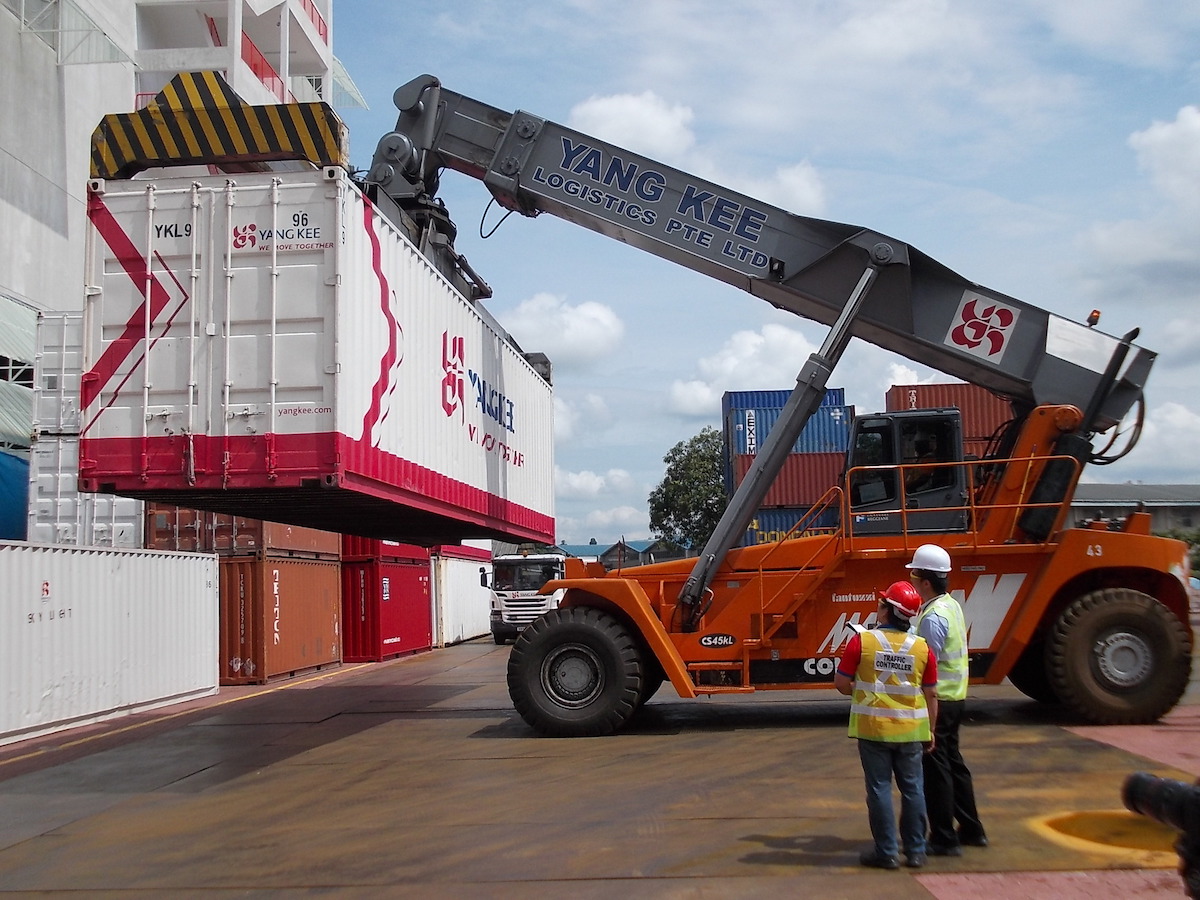
Yang Kee Logistics participates in the SkillsFuture Earn and Learn scheme, a 12-month program that helps graduates from Singapore’s Polytechnic and the Institute of Technical Education (ITE) transition into careers in their chosen field. In its first intake, the company took on 6 recruits from the program. For mid-career hires to the industry, it also runs a professional conversion program. “We also invest heavily in corporate welfare and events such as annual fitness days and family days,” he adds. An onsite crèche and nursing rooms for mothers who have returned to the workforce further reflect the importance of family in the overall company structure.
Ken admits that the rapid pace of Yang Kee Logistics’ growth has not come without its challenges. “Some of our most long-serving employees have struggled to keep up with changes in the organisation,” he says. Integrating existing staff with new recruits has occupied much of his tenure. “As we expand, we’re bringing in professionals from multinational companies who are equipped with a multinational mindset and a professional way of managing things,” he explains. “It’s been quite a challenge for my existing people to learn from them and to change with them.”
Communication has underpinned his approach to the issue. “I’ve held a lot of meetings,” he laughs, before recapturing a more serious tone. “I talk our people through the reasons why we’re doing all this: to offer a better future for everyone. I try to explain that if we remain where we are, our market share will not be enough.”
At the senior management level in particular, retreats are used as a tool to bring both old and new staff together. “Activities such as breakout sessions allow everyone to become familiar and comfortable with each other,” he says, concluding that he does a lot of listening. “I’m still very involved in the company. I listen to my people and adjust as I go along.”
Moving together
Ken credits service and people for distinguishing Yang Kee Logistics from its competitors in the saturated Singaporean logistics market. “There’s no way we’ll ever be as big a company as DHL, nor do we want to be. The bigger an organisation becomes, the more complicated it is to control,” he cautions. Acknowledging that “we cannot work with everybody,” Ken explains that the business is very selective of its customers. “When we work with our customers, we emphasise our people, our service, and our ability to get things right. “The wonderful thing about Yang Kee Logistics is that we give personalisation to our customers.” Offering a corporate governance on par with the big industry players and a level of personal attention the industry “giants”, as he refers to them (DHL and DB Schenker are the 2 he names), are unable to offer, the company has been “receiving a lot of traction with multinational companies.”
“Logistics touches every single aspect of our lives. From the food we eat to the clothes we wear, and even the thank you cards we send to our loved ones.” – Ken Koh
For any business hoping to succeed in the logistics industry, ‘reliability’ is one word that clients must associate with it. Ken believes cultivating healthy relationships with suppliers and partners is crucial to ensuring his customers receive the seamless service they demand. “Supplier relationships are very important to me,” he says. “We always take care of our suppliers, and I think we’re an unusual customer, in a good way, because we don’t squeeze our contractors. We want to make sure they enjoy working with us and make a profit as well. That’s our main motive because, once we earn their loyalty, they support us in offering excellent customer service to our customers. So we value our supplier relationships very much, and our suppliers have all been long-term partners of ours.” So what about Ken’s vision, then? “To be the leading logistics partner of choice for our customers,” he says. “When they have a problem, when they want a partner that is reliable, I want Yang Kee Logistics to be the first name they think of.”
Ken enthuses what he loves most about his industry is that it makes things happen for everyone. “Unless you’re living alone in a cave on some mountain, logistics touches every single aspect of our lives. From the food we eat to the clothes we wear, and even the thank you cards we send to our loved ones, logistics makes every day we live move in its own way.” The corporate tag line ‘We Move Together’ reflects this. “We have to make sure we help everybody move together, not just Yang Kee Logistics but also our customers, suppliers, employees, shareholders. This is the part that makes it most fun for all.”

